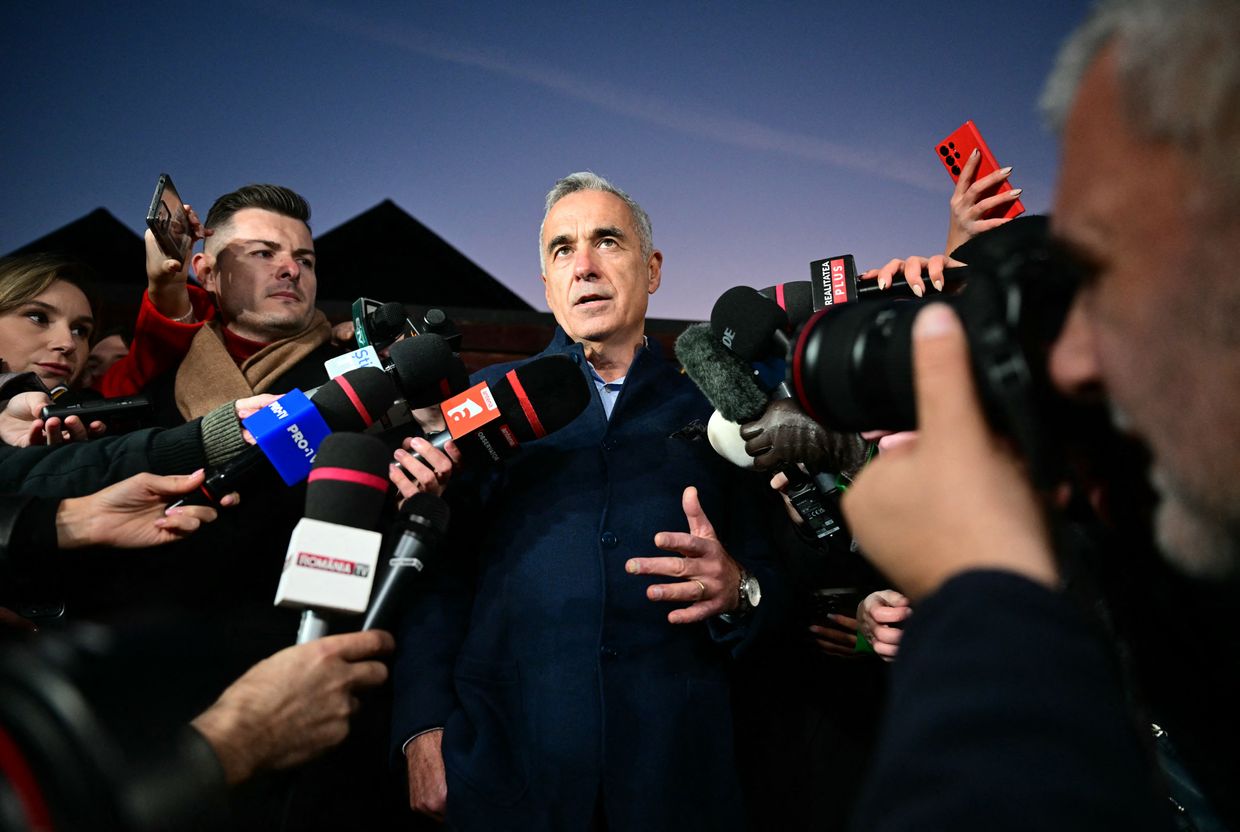Romanian constitutional court annuls results of presidential election's first round

The Romanian Constitutional Court annulled the results of the first round of the presidential election, which had been led by anti-NATO, pro-Russian independent candidate Calin Georgescu, Digi24 reported on Dec. 6.
Georgescu emerged as the frontrunner after the Nov. 24 vote, securing 23% of the ballots. Pro-EU candidate Elena Lasconi came in second with 19%.
Georgescu, who has praised Russian President Vladimir Putin and Romania's pro-Nazi World War II-era leader Ion Antonescu, had been expected to face Lasconi in the Dec. 8 runoff. However, the government must now schedule a new election date.
The Constitutional Court judges overturned the results after reviewing newly declassified documents from the Romanian Supreme National Defense Council. According to the documents, Georgescu's campaign was "the result of organized manipulation from abroad."
The records reportedly revealed an "artificial increase" in Georgescu's popularity from 1% to 22% through a large-scale manipulation effort shortly before the election, Radio Free Europe/Radio Liberty reported.
Nearly 25,000 TikTok accounts, allegedly used to boost Georgescu's visibility, "became very active two weeks before the election date." Before Nov. 11, about 800 of these accounts showed minimal activity, but "the entire network was activated at full capacity" shortly thereafter, the documents stated.
The pro-Russian candidate's campaign also involved recruiting influencers on TikTok and creating accounts that falsely reported on Romanian state institutions’ activities.
The current Prime Minister, Marcel Ciolacu, who did not make it to the second round, called the decision of the Romanian Constitutional Court "the only possible way out" in light of unveiling the records. Ciolacu came in third in the initial round, behind Lasconi by 0.03%, equivalent to 2,742 votes.
Lasconi criticized the court's decision, equating it with "interference in democracy."
This week, Georgescu announced that if elected, he would ban Ukrainian grain exports through Romania and halt further military aid to Ukraine.
While Georgescu's voters may not be "profoundly anti-Ukraine," they "voted for an anti-Ukraine candidate because the (political) establishment is pro-Ukraine," said Razvan Petri, a colleague of Adrian Adamescu at Politica La Minut.
If Georgescu takes office, he would join a small but growing group of Ukraine-skeptical leaders within NATO and the EU, including Hungary's Viktor Orban and Slovakia's Robert Fico.














